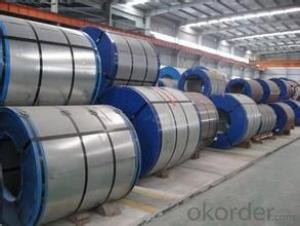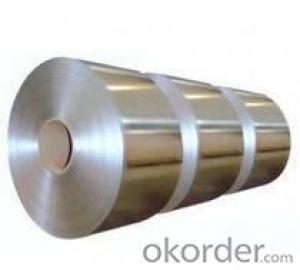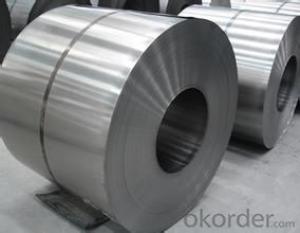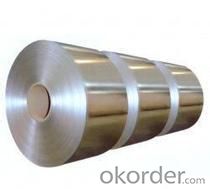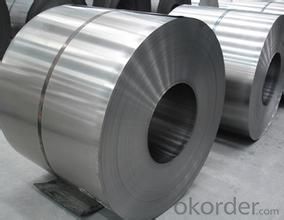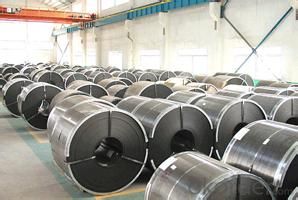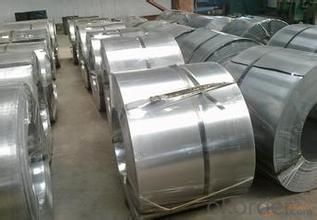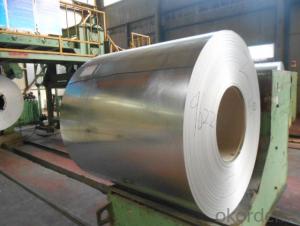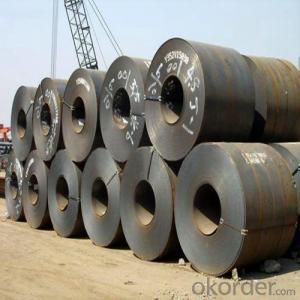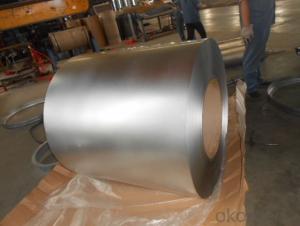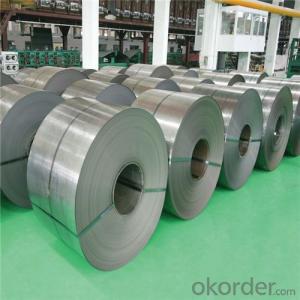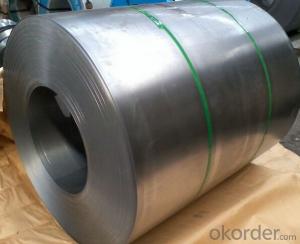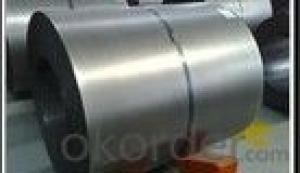excenllent Cold Rolled Steel Coil/Sheet in Good Quality
- Loading Port:
- Tianjin
- Payment Terms:
- TT OR LC
- Min Order Qty:
- 50 m.t.
- Supply Capability:
- 5000000 m.t./month
OKorder Service Pledge
OKorder Financial Service
You Might Also Like
Specification
The raw material of cold rolled steel coil/sheet is high quality hot rolled product, and after pickling, kinds of new technology and new process of global cold rolling production have been applied. Therefore the manufacturing, home appliance, automobile etc.
COLD ROLLED STEEL | |
Thicknenss | 0.10mm-4.00mm |
Width | 600mm-2000mm |
Sheets length | 1200-6000mm |
Coil inner diameter | 508-610mm |
Surface treatement | matt finish/bright finish,oiling/dry, bright anneal/black anneal |
Coil weight | 3-5t |
Package & Delivery
Package details: Standardseaworthy packing for international delivery.
Delivery: According to theexact quantity of your order.
Quality of the goods could be guaranteed. The finished product has a variety of excellent capabilities, such as continuous rolling, degreasing, annealing, skin pass, slitting and cut to length line etc. Along with it many rocessing capability and smooth, flat surface. It’s widely used in outdoor and interior decoration, furnishing
We can ensure that stable quality standards are maintained, strictly meeting both market requirements and customers’ expectations. Our products enjoy an excellent reputation and have been exported to Europe, South-America, the Middle-East, Southeast-Asia, Africa and Russia etc.. We sincerely hope to establish good and long-term business relationship with your esteemed company.
- Q: I need to identify a metal. It is rusty so I suspect it is either iron or steel. Since they both have similar densities and are magnetic, how do I tell the difference betweeen steel and iron?
- Iron and Steel Manufacture, technology related to the production of iron and its alloys, particularly those containing a small percentage of carbon. The differences between the various types of iron and steel are sometimes confusing because of the nomenclature used. Steel in general is an alloy of iron and carbon, often with an admixture of other elements. Some alloys that are commercially called irons contain more carbon than commercial steels. Open-hearth iron and wrought iron contain only a few hundredths of 1 percent of carbon. Steels of various types contain from 0.04 percent to 2.25 percent of carbon. Cast iron, malleable cast iron, and pig iron contain amounts of carbon varying from 2 to 4 percent. A special form of malleable iron, containing virtually no carbon, is known as white-heart malleable iron. A special group of iron alloys, known as ferroalloys, is used in the manufacture of iron and steel alloys; they contain from 20 to 80 percent of an alloying element, such as manganese, silicon, or chromium.
- Q: What are the different types of steel coil finishing machines?
- There are several different types of steel coil finishing machines, including slitting machines, cut-to-length machines, and coil coating machines. Slitting machines are used to cut steel coils into narrower strips, while cut-to-length machines are used to cut steel coils into specific lengths. Coil coating machines are used to apply a protective coating or finish to the surface of steel coils.
- Q: What are the advantages of using galvanized steel coils?
- There are several advantages to using galvanized steel coils. Firstly, galvanized steel is highly resistant to corrosion, which means it can withstand exposure to moisture and other harsh environmental conditions without rusting. This makes it a durable and long-lasting material for various applications. Secondly, galvanized steel coils have a protective zinc coating that acts as a barrier against damage and provides excellent structural strength. Additionally, galvanized steel coils are versatile and can be easily formed, welded, and painted, making them suitable for a wide range of industries and projects.
- Q: Are steel coils used in furniture manufacturing?
- Yes, steel coils are commonly used in furniture manufacturing for various purposes such as providing support and stability to seating structures, enhancing durability, and ensuring proper weight distribution.
- Q: What is stainless steel 316, and what are its properties and uses?
- For machined aspects 416 cautioned. For welded aspects 316 is cautioned. besides the shown fact that 316 supplies a greater advantageous corrosion resistance. oftentimes the only benefit for 416 is machinability others than that 316 is greater advantageous
- Q: What is the minimum temperature that steel coils can withstand?
- The minimum temperature that steel coils can typically withstand without undergoing significant changes in their physical properties is around -40 degrees Celsius (-40 degrees Fahrenheit). However, this can vary depending on the specific type and grade of steel used in the coils.
- Q: If you were selecting a tool steel for an extreme impact load application, which one would you pick? why?thanks
- It all depends what the application actually is. For hammers I would select a hammer grade B1 steel. For impact loading where an edge is needed I would be going for O1 or similar (oil quenching steels tend to be a little tougher than air hardening). For mining tools a very high manganese steel (Hadfields steel) - this is not a true tool steel. The best place to start is by looking at the ranking of the properties which you want - hardness v toughness v strength - and then use this to put the steels in rank order. Price and availablity then sort the problem out for you (in the real world).
- Q: How do steel coils contribute to the manufacturing of steel furniture?
- The manufacturing of steel furniture heavily relies on steel coils, which play a critical role. These coils, constructed from top-notch steel, act as the primary raw material for the production of various furniture items. To begin with, the framework and structure of steel furniture are created using steel coils. Manufacturers can easily cut, shape, and weld these coils into different sizes and shapes, allowing them to produce robust and enduring furniture frames. The flexibility of steel coils enables the production of furniture with intricate designs and distinctive shapes, providing both functional and aesthetic value. Additionally, steel coils are utilized to fabricate springs for furniture like sofas and chairs. The elasticity and strength of these steel coils make them ideal for crafting comfortable and supportive seating options. The coils are meticulously shaped and integrated into the furniture, ensuring that the seating surface offers the necessary resilience and flexibility for a comfortable experience. Moreover, steel coils contribute to the overall durability and longevity of steel furniture. Steel is renowned for its high tensile strength and resistance to wear and tear, making it an excellent choice for furniture subjected to heavy use and weight load. By utilizing steel coils, the furniture can endure years of regular use without compromising its structural integrity. Furthermore, steel coils are often treated with various finishes and coatings to enhance their appearance and protect them from corrosion. These coatings can be applied to the coils prior to shaping them into furniture components, guaranteeing that the final product maintains its aesthetic appeal and remains resistant to rust and other forms of damage. In conclusion, steel coils are a vital component in the manufacturing of steel furniture. They provide the necessary strength, flexibility, and durability required to create sturdy furniture frames, comfortable seating surfaces, and long-lasting products. The absence of steel coils would render the production of steel furniture impossible, compromising the quality and performance of the final products.
- Q: How do steel coil manufacturers contribute to local economies?
- The local economies are positively impacted by steel coil manufacturers in various ways: 1. Job opportunities are created through the establishment and expansion of steel coil manufacturing plants. This leads to a decrease in unemployment rates and an increase in income levels, resulting in higher local spending and economic growth. 2. A network of local businesses benefits from the demand generated by steel coil manufacturers. These businesses include suppliers of raw materials, equipment, and services such as steel producers, logistics companies, packaging providers, and maintenance service providers. The presence of a steel coil manufacturer stimulates the growth and development of these local businesses, contributing to the overall economic vitality of the region. 3. The steel coil manufacturing industry acts as a catalyst for the development of secondary industries. These industries rely on steel as a primary input and include steel fabrication, construction, automotive manufacturing, and machinery production, among others. The presence of a steel coil manufacturer attracts and supports the growth of these industries, resulting in increased economic activity and job opportunities. 4. Local economies benefit from the payment of various taxes by steel coil manufacturers, including corporate income taxes, property taxes, sales taxes, and employment taxes. The significant tax revenue generated by these manufacturers can be utilized by local governments to fund public infrastructure projects, education, healthcare services, and other essential community services. 5. The economic impact of steel coil manufacturers extends beyond their direct operations. Their presence attracts other businesses and industries to the region, creating a multiplier effect. For example, steel distributors, fabricators, and processors may establish operations nearby to take advantage of the proximity to the manufacturer. This cluster of related industries further contributes to the local economy, creating a self-sustaining cycle of economic growth and development. To summarize, steel coil manufacturers contribute to local economies by creating jobs, supporting local suppliers, stimulating secondary industries, generating tax revenue, and triggering an economic multiplier effect. Their presence enhances the economic vitality of the region, leading to increased employment opportunities, income levels, and overall economic growth.
- Q: What are the advantages of using steel coils in various industries?
- There are several advantages of using steel coils in various industries. Firstly, steel coils are highly durable and have a high strength-to-weight ratio, making them suitable for heavy-duty applications. Secondly, steel coils offer excellent resistance to corrosion, which is crucial in industries exposed to harsh environments or chemicals. Additionally, steel coils can be easily formed and shaped, allowing for flexibility in design and customization. Lastly, steel coils are recyclable, making them an environmentally-friendly choice while reducing waste and promoting sustainability.
Send your message to us
excenllent Cold Rolled Steel Coil/Sheet in Good Quality
- Loading Port:
- Tianjin
- Payment Terms:
- TT OR LC
- Min Order Qty:
- 50 m.t.
- Supply Capability:
- 5000000 m.t./month
OKorder Service Pledge
OKorder Financial Service
Similar products
Hot products
Hot Searches
Related keywords
